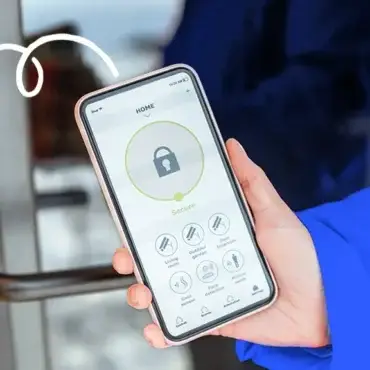Introduction
Certifications and training are cornerstones for anyone aiming to excel in cyber forensics and incident response. As digital crime grows in complexity, so does the demand for professionals with proven expertise and the ability to respond quickly to evolving threats. Here’s a comprehensive exploration—spanning core certifications, career strategies, and top training providers—designed for both beginners and experienced practitioners in 2025.
The Value of Certifications
Certifications are more than just accolades on a resume. They demonstrate up-to-date, practical knowledge in digital forensics, evidence handling, and incident management. Employers across sectors—from law enforcement to private industry—use certifications to verify technical and procedural competence, ensuring that professionals not only understand theoretical concepts but can also apply them in the field. They’re essential for building credibility, career advancement, and specialisations within the broader cybersecurity landscape.
Top Cyber Forensics Certifications in 2025
Computer Hacking Forensic Investigator (CHFI) – EC-Council
-
This globally recognised certification covers forensic investigation, evidence collection, and legal standards. It’s ideal for those investigating digital breaches or managing evidence for court purposes.
-
CHFI is favoured by individuals seeking roles in law enforcement or corporate security teams.
Certified Ethical Hacker (CEH) – EC-Council
-
While traditionally scoped for penetration testers, CEH is valuable in cyber forensics since it teaches how adversaries exploit networks—and how investigators can trace their activities.
-
CEH holders are better positioned to reconstruct attacks, simulate threats, and strengthen system defences.
GIAC Certified Forensic Analyst (GCFA) – GIAC/SANS Institute
-
GCFA addresses complex incident response scenarios such as memory forensics, malware analysis, and advanced persistent threats, making it perfect for mid- to senior-level investigators.
-
Developed and recognised by the SANS Institute, a leading name in cybersecurity training.
Certified Forensic Computer Examiner (CFCE) – IACIS
-
CFCE is prominent among public sector investigators and law enforcement. It validates comprehensive knowledge in the collection, preservation, and analysis of digital evidence.
-
A solid foundation for those seeking court-acceptable forensic skills.
EnCase Certified Examiner (EnCE)
-
Focused on mastery of the EnCase digital forensics platform, this certification is especially valued in investigations involving computer and disk analysis.
-
EnCE is favoured by forensic labs and is often a requirement for government and private investigatory roles.
Certified Digital Forensics Examiner (CDFE)
-
Certified by organisations like NICCS, CDFE programs present practical guidance for investigating data breaches and preparing actionable evidence, bridging technical know-how and legal rigour.
GIAC Certified Forensic Examiner (GCFE)
-
Similar to GCFA but focused primarily on Windows forensic analysis and foundational incident response tasks.
GIAC Advanced Smartphone Forensics (GASF)
-
Targets the fast-growing field of mobile device investigations, equipping professionals to analyze data from modern smartphones and tablets.
Choosing a Certification: Tailoring to Career Goals
Selecting the best certification depends on experience, job role, and sector:
-
Beginners: Start with CEH or CHFI for exposure to threat landscapes and hands-on skills.
-
Intermediate Professionals: GCFA and CFCE add niche investigative capabilities for those managing or leading investigations.
-
Advanced Experts: Specialise further with cloud security certifications or courses focusing on reverse engineering, mobile, or network forensics.
For law enforcement and judicial roles, certifications emphasising chain of custody, evidence handling, and legal standards (e.g., CFCE, EnCE) are critical. Private sector professionals may focus on broad knowledge and multi-tool versatility, combining certifications like CEH, GCFA, and CHFI.
Key Considerations When Selecting a Training Provider
-
Focus on providers offering extensive hands-on labs, scenario-based learning, and exposure to popular forensic tools like EnCase, FTK, or open-source frameworks.
-
Evaluate the background of instructors; practical field experience is as valuable as academic credentials.
-
Seek training providers that keep content updated with the latest threat vectors, regulatory requirements, and forensic technologies.
Hawkeye Forensic Lab – Training with Real-world Tools
For those searching for a training provider committed to both theory and practical skills, Hawkeye Forensic Lab stands out. Based in Noida, India, Hawkeye Forensic Lab is an ISO-certified organisation specialising in digital forensics services and education.
What sets Hawkeye apart is its focus on hands-on practical sessions with industry-standard forensic tools and software. We deliver tailored training aligned with international (UK/USA) standards, offering courses like CHFI and providing exposure to casework and real evidence processing environments. Whether through classroom instruction or live labs, their approach ensures students are ready for field work—from crime scene investigation to courtroom testimony.
Our reputation as a key training and forensic support partner for law enforcement, insurance, and legal professionals makes us a premier choice for anyone wishing to launch or advance a career in digital forensics. Hawkeye Forensic Lab’s programs reflect a commitment to bridging the gap between academic learning and field proficiency—equipping the next generation of forensic experts with the tools and confidence to make a real-world impact





Post comments (0)